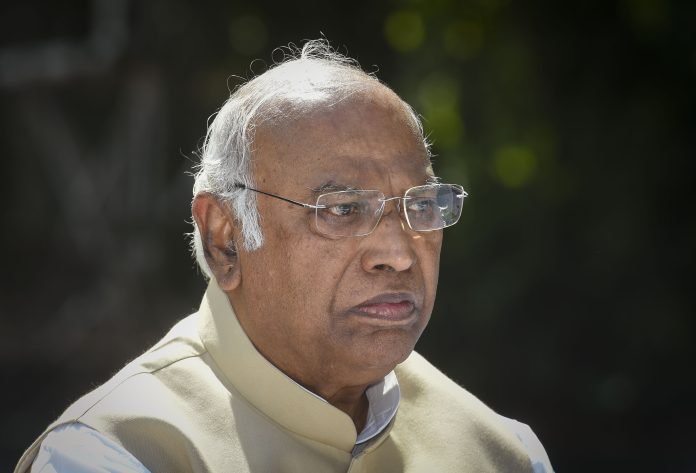In a bold move, Congress has criticized Prime Minister Narendra Modi for being a ‘weak PM’ after the US imposed a significant $100,000 annual fee for H-1B visas. This situation has generated tension in India’s foreign policy strategy. On Saturday, Congress leaders leveled harsh accusations against Modi, arguing that his leadership style is leaving India vulnerable in international affairs.
The rift comes at a crucial time—shortly after US President Donald Trump signed the new visa fee regulation. According to the Congress party, this fee hike primarily affects Indian nationals, who make up a staggering 70% of H-1B visa holders. This policy shift has ignited discussions about the adequacy of Modi’s foreign policy during Trump’s presidency.
Congress Voices Concerns Over Modi’s Strategy
Congress President Mallikarjun Kharge emphasized that foreign policy must prioritize India’s national interests. He stated, “Events and optics do not equate to effective governance.” His comments came in light of the substantial financial burden this new visa fee could impose on Indian tech professionals, many of whom support their families back home.
“Foreign policy should not be reduced to superficial bravado,” Kharge insisted. He believes the Modi administration’s focus on high-profile diplomacy is overshadowing critical economic issues facing Indian workers abroad.
Impact of H-1B Visa Changes on Indian Workers
The implications of the H-1B visa fee increase for Indian tech workers are alarming. Rahul Gandhi, Leader of Opposition in the Lok Sabha, echoed Kharge’s sentiments by stating, “I repeat, India has a weak PM.” The increase means that a vital pathway for talented professionals to work in the US is becoming increasingly expensive and inaccessible.
Kharge noted that this issue could lead to a loss of approximately ₹2.17 lakh crore across ten sectors in India. “This H-1B visa change could negate years of hard work by our brightest minds,” he warned. The economic ripple effect could be deeply felt across the tech industry.
Strategic Failures or Political Posturing?
Congress leaders continue to scrutinize Modi’s diplomatic interactions with Trump. Kharge recently claimed that Modi’s efforts have yielded minimal benefits, citing a pattern where international friendships have not translated into tangible economic advantages.
Additionally, Congress Deputy Leader Gaurav Gogoi criticized Modi’s response to Trump’s aggressive immigration policies. He referred to a time when India was led by former PM Manmohan Singh, who demonstrated resilience in the face of diplomatic challenges. “Now, PM Modi’s approach to strategic silence and loud optics risks our national interests,” Gogoi asserted.
What’s Next for Indian Tech Workers?
As tensions mount, the future remains uncertain for Indian professionals seeking work in the US. The H-1B visa program was initially designed to complement the American workforce with high-skilled talent. However, it has since faced allegations of exploitation, prompting the Trump administration to enact stricter measures.
Experts warn that these changes could have far-reaching effects not just for individual workers, but also for India’s technological advancements and investments abroad. “India needs a robust foreign policy that champions our workforce,” Kharge concluded in a recent social media post.
Overall, with the US tightening its immigration policies and growing criticism of Modi’s handling of international relations, the Congress party’s claims resonate with many fearing for the future of Indian professionals and the tech sector.



